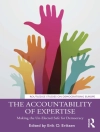Since the Enlightenment, liberalism as a concept has been foundational for European identity and politics, even as it has been increasingly interrogated and contested. This comprehensive study takes a fresh look at the diverse understandings and interpretations of the idea of liberalism in Europe, encompassing not just the familiar movements, doctrines, and political parties that fall under the heading of “liberal” but also the intertwined historical currents of thought behind them. Here we find not an abstract, universalized liberalism, but a complex and overlapping configuration of liberalisms tied to diverse linguistic, temporal, and political contexts.
विषयसूची
List of Figures
Introduction: European Liberal Discourses: Conceptual Affinities and Disparities
Michael Freeden and Javier Fernández-Sebastián
Chapter 1. Habsburg Liberalisms and the Enlightenment Past, 1790–1848
Franz Leander Fillafer
Chapter 2. Formulating and Reformulating ‘Liberalism’: Germany in European Comparison
Jörn Leonhard
Chapter 3. ‘Friends of Freedom.’ First Liberalisms in Spain and Beyond
Javier Fernández-Sebastián
Chapter 4. Liberalism in Portugal in the Nineteenth Century
Nuno Gonçalo Monteiro and Rui Ramos
Chapter 5. The Rise and Fall of ‘Liberalism’ in France
Helena Rosenblatt
Chapter 6. Nordic Liberalisms. Sweden and Denmark in Comparison
Jussi Kurunmäki and Jeppe Nevers
Chapter 7. ‘Liberalism’ and ‘Liberality’. The Liberal Tradition in the Netherlands
Henk te Velde
Chapter 8. A Conceptual Scheme of Polish Liberalism: Six Pillars
Maciej Janowski
Chapter 9. Liberal Politics without Liberal Thought? The Strange Career of Italian Liberalism
Paolo Pombeni
Chapter 10. Encounters with Liberalism in Post-Soviet Russia
Olga Malinova
Chapter 11. Temporal Evolution and Morphological Complexity: The Multiple Layers of British Liberalism
Michael Freeden
Conclusion
Michael Freeden
Index
लेखक के बारे में
Jörn Leonhard is Full Professor in Modern European History at Freiburg University. From 2007 to 2012 he was one of the Founding Directors of the School of History of the Freiburg Institute for Advanced Studies (FRIAS). In 2015, he was elected member of the Heidelberg Academy of Sciences.












